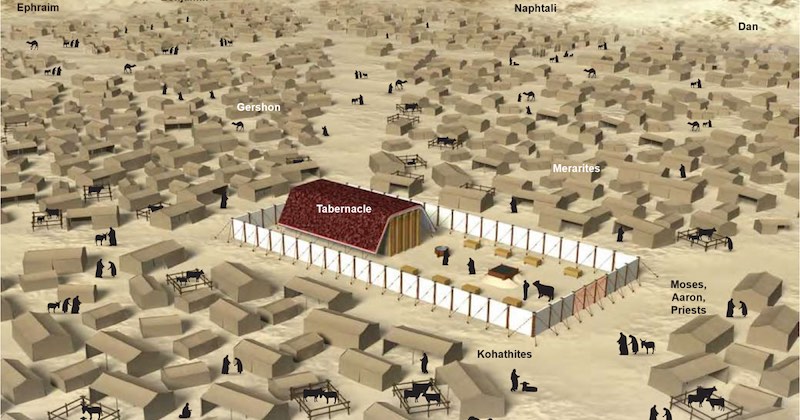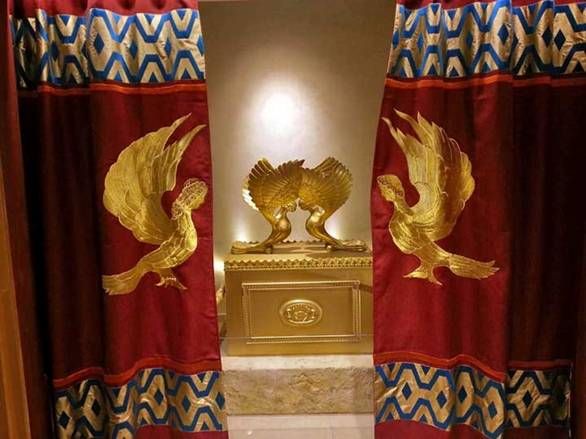Several years ago I traveled to South America with a few friends. While we were there we were hosted by a few different families in a small village where we stayed. The people in this village lived a simple life and we were all humbled by the more primitive conditions in the homes of these families. Their homes had running water, four walls, and a roof but they certainly were not luxurious. They had what they needed but not much more.
One evening the families made us a nice dinner of chicken, rice, and some vegetables. They served the meal to us and we ate to our hearts content. After we got up from the table they sat down to eat the food which we had left on our plates. I was shocked to see this sight. The people lived a simple life but they didn’t seem impoverished. We just didn’t realize how costly of a meal they had prepared for us. For me and my friends it was a simple but nice meal. For our local hosts it was a costly meal and they did not let one morsel of food go to waste. Unfortunately, my friends and I were oblivious to the price that was paid for that meal.
The memory of that meal is still riveted in my mind because I realized at that moment that our hosts gave to us the best they could offer and they didn’t spare any cost. We left our plates of half eaten food without thinking about the cost and the sacrifice which they had made for us. I don’t even remember their names but I will never forget their kindness and generosity to us. This week’s reading from the Torah Portion highlights this principle of generosity and how God remembers those who give.
The Offering for the Tabernacle
The title of this week’s reading is called ויקהל – Vayakhel which means “And he assembled…” referring to Moses who brought together the whole congregation of the children of Israel in order to inform the people regarding the construction of the Tabernacle. Like any good pastor of a large congregation, Moses started this building project by taking an offering:
Moses spoke to all the congregation of the sons of Israel, saying, “This is the thing which the LORD has commanded, saying, ‘Take from among you a contribution to the LORD; whoever is of a willing heart, let him bring it as the LORD’s contribution: gold, silver, and bronze, and blue, purple and scarlet material, fine linen, goats’ hair, and rams’ skins dyed red, and porpoise skins, and acacia wood, and oil for lighting, and spices for the anointing oil, and for the fragrant incense, and onyx stones and setting stones for the ephod and for the breastpiece. – Ex. 35:4-9
The offering was to be a freewill offering from all of those whose heart was favorable to the Tabernacle project.
Moses provided specifics to the people for the exact resources that they would need to build the Tabernacle. The people responded in an overly generous manner by providing all that was needed. In fact, the people had brought so much that they had to make an announcement to keep the people from bringing anymore:
So Moses issued a command, and a proclamation was circulated throughout the camp, saying, “Let no man or woman any longer perform work for the contributions of the sanctuary.” Thus the people were restrained from bringing any more. For the material they had was sufficient and more than enough for all the work, to perform it. – Ex. 36:6-7
The people were restrained from bringing anymore contributions as the work of the Tabernacle was to commence.

Building the Tabernacle
Once all of the materials were gathered together for the work of the Tabernacle, the people began to work the materials according to the exact plan of the LORD. Although Moses was the leader of the children of Israel, God had chosen another person to manage the Tabernacle project and to oversee all of the various details:
Then Moses said to the sons of Israel, “See, the LORD has called by name Bezalel the son of Uri, the son of Hur, of the tribe of Judah. And He has filled him with the Spirit of God, in wisdom, in understanding and in knowledge and in all craftsmanship; to make designs for working in gold and in silver and in bronze, and in the cutting of stones for settings and in the carving of wood, so as to perform in every inventive work…” – Ex. 35:30-33
Bezalel was literally filled with the Spirit of God and given the skills and understanding needed to accomplish all of the design and work in the various materials to produce the Tabernacle which God had instructed the nation of Israel to build for Him. To learn more about the meaning of the Hebrew name Bezalel, read this article: Shadow of the Law
Although Bezalel was the appointed person to oversee the construction of the Tabernacle, he was not the only one who did the work. He was joined by another man named Oholiab and they taught others to do the work as well. It was a joint venture with everyone working together and each one using his or her skills to get the project completed.
Piece by piece, each and every part of the Tabernacle was woven together, cast into its form, and assembled as needed. The Tabernacle along with all of the furnishings of the holy place and the most holy place were designed and crafted. Ironically, the only image of a living being which was found in the Tabernacle was that of the cherubim. Cherubim were crafted as one piece as part of the mercy seat which was placed on top of the ark of the covenant (Ex. 37:6-9) and their image was also embroidered into the curtains of the Tabernacle (Ex. 36:8-13) as well as on the veil of the Tabernacle (Ex. 36:35). To learn more about the significance of the cherubim, read this article: Cherubim
God is in the Details
God gave Moses and the children of Israel a detailed plan for the Tabernacle because God is a holy God and He requires His people to worship Him in a manner fitting His holiness. Every aspect of the Tabernacle had a purpose down to the very clasps that held the curtains together. Bezalel, along with all of those who assisted him, completed each section of the Tabernacle exactly how God had intended it from the exact material which God required.
Hidden in the details of the construction of the Tabernacle we read one verse that is unique and stands out as it provides extra information regarding the source from which one of the vessels of the Tabernacle was made:
Moreover, he made the laver of bronze with its base of bronze, from the mirrors of the serving women who served at the doorway of the tent of meeting. – Ex. 38:8
In this one verse we read about the source of the material for the bronze laver which was constructed along with its base. Why do the Scriptures tell us that the bronze for the laver came from the mirrors of the women who served at the doorway of the tent of meeting?
Who Were These Women?
The biblical text does not provide any names for these women. They were simply the women who served at the doorway of the tent of meeting. Since the Tabernacle had not yet been built, it is clear that they must have served in some capacity at the entrance to the tent of meeting where Moses would meet with the LORD:
Now Moses used to take the tent and pitch it outside the camp, a good distance from the camp, and he called it the tent of meeting. And everyone who sought the LORD would go out to the tent of meeting which was outside the camp. And it came about, whenever Moses went out to the tent, that all the people would arise and stand, each at the entrance of his tent, and gaze after Moses until he entered the tent. Whenever Moses entered the tent, the pillar of cloud would descend and stand at the entrance of the tent; and the LORD would speak with Moses. When all the people saw the pillar of cloud standing at the entrance of the tent, all the people would arise and worship, each at the entrance of his tent. Thus the LORD used to speak to Moses face to face, just as a man speaks to his friend. When Moses returned to the camp, his servant Joshua, the son of Nun, a young man, would not depart from the tent. – Ex. 33:7-11
Just as Joshua accompanied Moses to the tent of meeting and served Moses at that place, there must have also been others who served in some capacity, which included a certain group of women.
The Women Who Served
When the scriptural text tells us that these women served at the doorway of the tent of meeting, it uses a very specific word to define the action of these women. The Hebrew reads as follows: הצבאות אשר צבאו – Hatzvaot Asher Tzavu, and is translated as “…the serving women who served…” The Hebrew word for “serve” used twice in this verse is צבא – Tzavah which is a unique word that can mean to fight or serve in a sacred manner. This same Hebrew word is used for the Levites who served the LORD at the Tabernacle (Num. 4:23. 8:24). We also see this same word used to describe the women who served at the Tabernacle in Shiloh (1 Samuel 2:22). These women may have helped with the physical needs surrounding the tent of meeting or they may have served in a spiritual manner through prayer.
We also don’t know exactly who these women were. We don’t know if these women were from the tribe of Levi, if they were wives of the priests, if they were married or single, or anything else. All we know is that these women served in some capacity at the tent of meeting and that they alone are specifically recognized for their contribution for the materials in building the Tabernacle.
The Gift of Mirrors
The contribution of the women who served at the doorway of the tent of meeting were mirrors made of bronze or brass. Who would give their mirror as a contribution? It may seem like a trivial gift, however, at the same time there appears to be great significance in this gift. The women gave mirrors which reflected their own image but in the Tabernacle the brass of those mirrors would be used to reflect the glory of God. The mirrors which allowed the women to focus on themselves and their own beauty were given as a gift to the LORD to be used in the Tabernacle which was the central place of worship in the camp of Israel to seek and worship the beauty of the LORD. The gift of mirrors was a perfect gift.
There were more than likely thousands and even tens of thousands of people who contributed to the Tabernacle project. There were definitely those who gave greater gifts according to the standards of this world: gold, silver, costly garments, and valuable spices. This being true, God did not choose to mention by name any of those who gave costly gifts. He only chose to have us remember the women who served at the tent of meeting who gave their mirrors for the laver (the basin used for washing).

God Looks at the Heart
It is easy to be deceived by the ways of this world and to think that God only recognizes the great acts which are done in His Name or the large donations which are given for a project or the community, however, God does not see as we see:
When they entered, he looked at Eliab and thought, “Surely the LORD’s anointed is before Him.” But the LORD said to Samuel, “Do not look at his appearance or at the height of his stature, because I have rejected him; for God sees not as man sees, for man looks at the outward appearance, but the LORD looks at the heart.” – 1 Samuel 16:6-7
God had sent Samuel to anoint a new king in place of King Saul. Samuel was sent to a certain family to anoint one of the sons of Jesse. God had to remind Samuel that He does not see as man sees. Man looks at the outward appearance, whereas God looks at the heart!
As we seek the LORD in our individual lives and also serve the LORD in the communities in which we find ourselves, we need to be careful not to pursue the strategies and methods of this world. As we serve the LORD we need to do all that we do as unto Him, remembering that He sees our heart. He will reward us at the proper time. Selfless acts that seek to bring glory to the Name and honor of the LORD will never be forgotten. This is why I believe God has recorded for us in His Word the memory of the women who served at the doorway to the tent of meeting and contributed their mirrors for the sake of the building of the Tabernacle. God remembers every act that is done in His Name, no matter who sees it.

Acts of Remembrance
In the New Testament we also see how Yeshua taught this principle of how God sees the seemingly trivial acts which are done in His Name:
And He sat down opposite the treasury, and began observing how the people were putting money into the treasury; and many rich people were putting in large sums. A poor widow came and put in two small copper coins, which amount to a cent. Calling His disciples to Him, He said to them, “Truly I say to you, this poor widow put in more than all the contributors to the treasury; for they all put in out of their surplus, but she, out of her poverty, put in all she owned, all she had to live on.” – Mark 12:41-44
God sees each and every person on this planet and He alone knows our circumstances and our hearts. This story of the poor widow should set us free to always act in a manner which gives glory to His Name because He sees every act of humankind and He is watching over us.
I have highlighted these two unique stories of women from the Bible to remind each of us that we must seek to serve the LORD above anything or anyone else on this earth. Neither the name of the poor widow who gave all she had nor the names of the women who donated their mirrors for the building of the Tabernacle are ever mentioned in the Bible. We don’t know their names but God does. Even though we don’t know their names, their actions are still speaking to us today.
We would be wise to learn from these women and live our lives for an audience of One. People who seek their own glory in this world will more than likely achieve it but it will remain in this world. People who seek the glory of God and serve Him from a pure heart will receive a reward that will last for eternity. God sees the heart and everything we do in His Name will be remembered by Him!
Shabbat Shalom!
If you enjoyed reading this article, share it today with friends! We also invite you to sign up for our weekly Torah Portion commentary on the sidebar to the right.
Help keep our weekly commentaries free and available to all. Click here to donate today:

Torah Portion: Ex. 35:1 – Ex. 38:20
Haftara: 1 Kings 7:40-50
Return to Torah Portion Homepage
Copyright Jewels of Judaism. All rights reserved 2019



This is a very precious and insightful article. Thank you!
I appreciate the encouragement Rosa!
Daniel